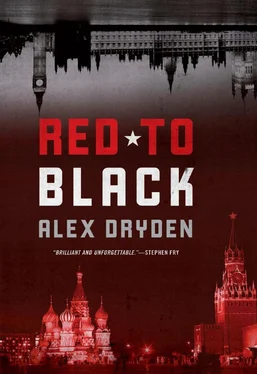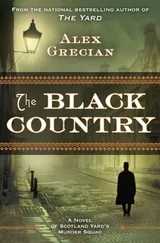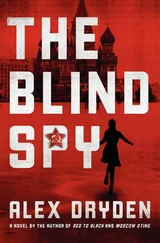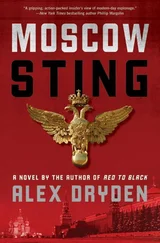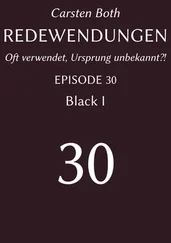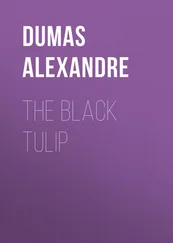‘You know, Rabbit,’ he told me, ‘your seriousness exposes the disguise of my frivolity, and my frivolity exposes the disguise of your seriousness.’
And so we played with and reacted to each other’s character opposites–in this and other ways–like two dissonant musical instruments which, combined, made sweet music. We slowly lured each other out of our inner hiding places. We dropped the emotional barbed wire that we’d both used to protect ourselves. And we fell in love with the differences we saw revealed in each other. I looked in the mirror of Finn and he looked in mine, and we began to see who we could be, who we really were.
Finn used to list the things he loved about me, in a sort of league table of characteristics that changed positions according to his whims. But I remember one true and beautiful thing he said, from early in our relationship, which stuck in my mind more than others.
We were in a corner suite at the Marco Polo Hotel, north of Pushkinskaya and our room looked down on to the ice park.
‘I forget how to pretend when I’m with you,’ Finn said to me.
And I felt the same way about being with him. I’d fallen like a stone, but what I said was: ‘You think you’re good at pretending?’
‘Are you?’ he said, smiling.
‘Yes. Better than you by a million miles.’
‘Pretend this, then,’ he said, and he kissed me.
But Finn’s reckless frivolity got him into trouble with others, particularly his masters at the British embassy, on more than one occasion.
‘It is symptomatic of your behaviour,’ was the way Finn’s head of station put it. ‘You don’t seem to take anything seriously any more.’
But he was wrong on both counts. First, Finn hardly ever took anything seriously.
‘There’s hardly anything worth taking seriously,’ he would say.
And, second, when he did take something seriously, he took it more seriously than anyone, his head of station included, could possibly have imagined.
IT WAS NOT ONLYmy father who was delighted when Andropov came to power, but also the whole of the KGB. And as soon as he had power, the old spy pursued a two-pronged policy. He ruthlessly put down dissent, including punishing people who committed economic crimes, and simultaneously he set about loosening the same reins a little by allowing a small, KGB-controlled experiment in free trade.
This was hugely significant in terms of how Russia has developed. A few carefully chosen so-called buzinessmen - traders with their own semi-legal tzekhs, or workshops- were allowed to conduct business while at the same time being closely monitored by the security services.
What Andropov and his cronies failed to see–or, more probably, exploited-was that the only people who could take advantage of these little windows of opportunity were the criminal elements, the mafia, the men who had conducted business throughout the history of the Soviet Union. They were the only people who knew what to do.
And so the mafia were the first to benefit from perestroika when it finally arrived under Gorbachev in 1985. They were already in pole position, the only ones with money. By the nineties they had completely entrenched their power. And with them were their allies in the KGB who watched over them and shared in the spoils. Thus the secret state and the mafia state were married in a devil’s pact.
‘It was the KGB itself who managed perestroika right from the beginning,’ Finn said. ‘Perestroika was an invention of the KGB’s.’
But from inside the KGB I couldn’t see it.
For my final exams, I wrote a short story, which won me a prize at school. It was a fictional tale about the last man to be executed in the Soviet Union for possession of more than ten thousand dollars; holding more than ten thousand dollars was still a capital offence under Gorbachev.
The story was called, ‘Not a Great Start to the Day’, a tongue-in-cheek title that echoed the thoughts of the condemned man as he looked out of his cell window on to the execution yard on his final morning on earth, and saw that it was snowing. My father was furious that I appeared to see injustice in the man’s execution.
After my parents returned to Moscow, all the years I’d spent with Nana in the capital and at the dacha in Barvikha, with only brief visits from them, hadn’t prepared me for the fact that my father evidently felt he still had complete power over my future.
Like our leaders, my father always looked angry. Sometimes his crossness spilled into rage and that always terrified me, until I learned to suppress my fear. My mother, however, never seemed to lose her nerve.
‘He has a very stressful job,’ she’d say. ‘He has to think about everything.’
I couldn’t understand, if his life was so bad, why he didn’t simply change it, get another job-retire, even. Fearful now of the change in my relationship with him, as he demanded I accompany him to functions, I didn’t fully understand that he endured a constricting fear that killed his self-expression. He lived in fear from the past, too; a fear that would eventually infect me.
What I also didn’t know, until much later, was that he worked in the most secret department of the SVR that dealt with nelegali, illegals. These were foreign nationals who had come to train in Russia in order to strike against their own countries. This department was called Department S. My father was a major recruiter of citizens of Syria and neighbouring countries and ran a vitally important network in the Middle East. He was a personal friend of Yasser Arafat.
But to me he was just a dangerous, lonely, angry man, who had, therefore, to be manipulated carefully. I remember one terrible night, when, after a state function, we had returned to one of the several apartments in Moscow that seemed to be at his disposal. He was drunker than usual, and began to manhandle me, though I couldn’t say for certain that it was molestation. I gave him more and more vodka until eventually he fell asleep. When I confronted him the next day, he said I had imagined the whole thing.
Twice he tried to marry me off to the sons of colleagues, including Vladimir, the older boy from school Number 47 whom I’d been instructed to befriend and with whom I’d maintained a distant friendship throughout our schooldays. Vladimir even asked me to marry him when I was seventeen and my father went into a fury when I refused. I didn’t want to end up like my mother, a necessary addition to a husband’s career. I didn’t want to be a woman whose job was to ‘understand’ her husband.
In avoiding that trap, I ended up in another.
Perhaps it was compensation for my refusal to marry Vladimir or any of my father’s choices that led me, subconsciously, to try to please him in other ways. And that was my weakness, believing I could still have a proper relationship with a man like him at all. But it was for this reason that I applied to study at the secret KGB training establishment at Yasenovo- the Forest–to the south of Moscow.
My application pleased my father. I did it without thinking, through a compulsion that was stronger than my base instincts. All the years of Nana’s sharp but gentle influence were swept away by obedience to the powerful hold I allowed my father to exert on me. If anything, the years of absence from my parents increased my desire to please him.
Nana never said a word when I told her-and that told me all I needed to know. Nana couldn’t have passed a KGB exam to save her life, but she despised the organisation. She used to tell me jokes about the KGB, in the woods, with a carelessness that old people so magnificently grow into. Nana and Genghiz saw eye to eye on the subject of our intelligence services. While Genghiz mocked their guard dogs, Nana mocked them.
Читать дальше
